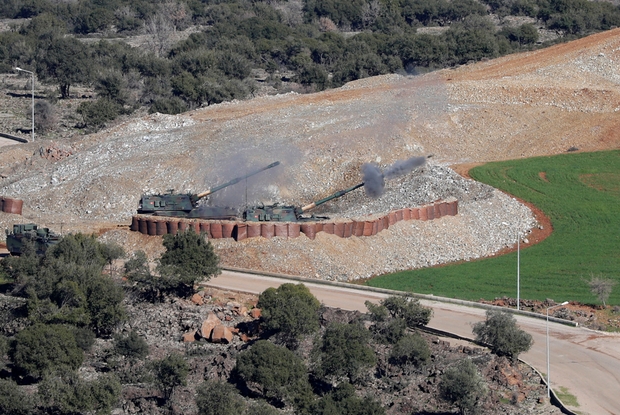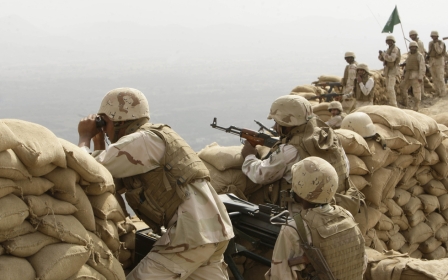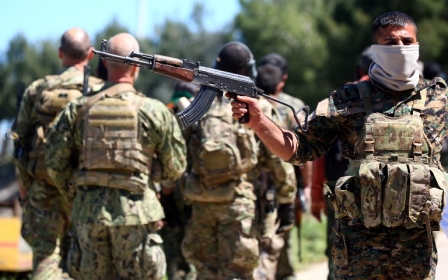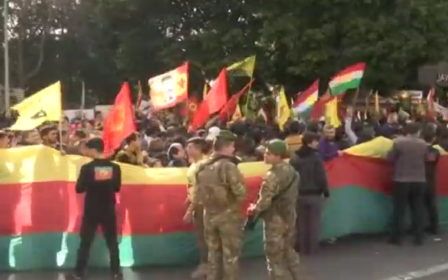'Moral depravity': Row deepens over Turkey using German-made tanks in Afrin

Germany came under renewed scrutiny over its arms sales on Wednesday after Turkey used German-made tanks in its offensive against Kurdish militias inside northern Syria.
Images of its offensive showed Turkey using German-made Leopard 2 tanks inside Afrin, northern Syria, as its ground troops continued to push further in Kurdish controlled territory.
The scrutiny comes as opposition parties in Berlin accused Germany of "moral depravity" after its arms sales increased last year to countries beyond its European Union and NATO allies.
"The figures that have now become public show that there is a degree of moral depravity that I did not consider possible," said Dietmar Bartsch, co-chair of the Left Party, told German-based broadcaster ARD.
"That must be stopped immediately," he added, referring to the sale of weapons that might be used against pro-Kurdish forces in Syria.
German arms sales to so-called third countries - those beyond the EU and NATO - rose to $4.69bn in 2017 from $4.54bn a year earlier.
The figures that have now become public show that there is a degree of moral depravity that I did not consider possible
Dietmar Bartsch, the Left Party
Turkey previously used Leopard 2 tanks during operation Euphrates Shield in 2016.
Around 20 percent of last year's third-country exports were accounted for by a warship sold to Algeria.
In the past, Germany has also sold arms to Egypt, Nigeria, South Africa and the Democratic Republic of Congo.
"The fact is: Germany supplies armaments. The fact is also: Germany has one of the most restrictive and toughest control systems worldwide," an Economy Ministry spokeswoman told a regular government news conference.
The co-governing Social Democrats (SPD) have promised to place restrictions on sales of weapons to non-allied countries. Foreign Minister Sigmar Gabriel - a former SPD leader - has pledged to impose more restrictions on export licenses, especially of light arms.
Gabriel called his Turkish counterpart on Monday to express concern about the possible impact on civilians of Turkey's offensive in northern Syria.
He is under fire from opposition lawmakers and even members of Chancellor Angela Merkel's conservatives for failing to speak up earlier, and for moving toward approving Ankara's request to have German arms maker, Rheinmetall upgrades its German-built tanks.
Germany halts arms sales to Saudi
On Friday, the German government announced plans to stop all arms exports to countries involved in the war in Yemen since 2015.
The move coincided with Norway's decision earlier this month to suspend all arms sales to the UAE over its involvement in the ongoing war in Yemen.
Saudi Arabia is a major buyer of German weapons and expected to be adversely impacted by the announcement.
The German government was forced to disclose the numbers after several members of parliament from the Left Party demanded the information.
The disclosure, however, did not give full details on the type of weapons exported, but Deutsche Welle noted that a significant proportion of the sales to Saudi Arabia is expected to include four patrol boats and 110 military trucks.
Germany is the world's third-biggest arms exporter, but weapons sales remain a domestically sensitive issue given the country's World War Two history.
New MEE newsletter: Jerusalem Dispatch
Sign up to get the latest insights and analysis on Israel-Palestine, alongside Turkey Unpacked and other MEE newsletters
Middle East Eye delivers independent and unrivalled coverage and analysis of the Middle East, North Africa and beyond. To learn more about republishing this content and the associated fees, please fill out this form. More about MEE can be found here.




